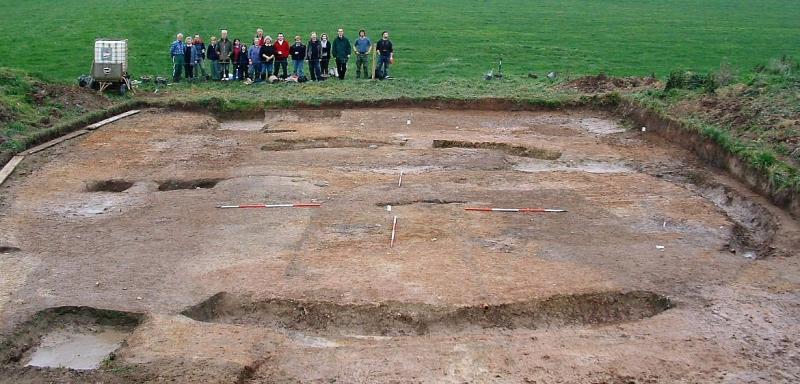The Poulton Project is a multi-period rural excavation 3 miles south of Chester, which has produced extensive evidence for 10,000 years of human activity. The site was discovered during the search for a lost Cistercian Abbey, when excavation unexpectedly revealed the foundations of a medieval Chapel and associated graveyard, with an estimated 2000 burials. Continual research has also uncovered Mesolithic flints (indicative of a seasonal hunting camp) and later tools of Neolithic and Bronze Age farmers. Notably, the site contains the largest Iron Age lowland settlement discovered west of the Pennines. An extensive and high status Roman landscape is indicated by structures, industry, and field boundaries, which have produced a large assemblage of ceramics, metal, and building material.
The Poulton Project offers students the opportunity to excavate well-preserved archaeology from a variety of periods. Currently, Iron Age roundhouses, Roman industrial structures, field boundaries, and the Medieval Chapel and graveyard are available in our field courses.
The dates for the 2015 season are March 30th-April 17th and 29th June-21st August
Student fees are as follows:
- £180 per week if booking one week only
- £175 per week per week if booking for two weeks
- £160 per week if booking for three weeks
- £150 per week if booking for four weeks
Please note that no accommodation is offered, but there are several camp sites and B&B accommodation available locally. Details and assistance in locating suitable accommodation will be provided. The courses are designed as an introduction to excavation techniques, plan and section drawing, context recording, photography, finds processing and surveying.
[Note that all of these would suit Skills Passport core and secondary skill training]
Contact: Kevin Cootes e-mail: kvecootes@hotmail.co.uk
The project supplies all tools and equipment, mess tents, toilets and facilities for tea, coffee, etc.
Students need to bring suitable digging clothes, footwear and lunch.
The Poulton Research Project is a registered charity. Number: 1094552
